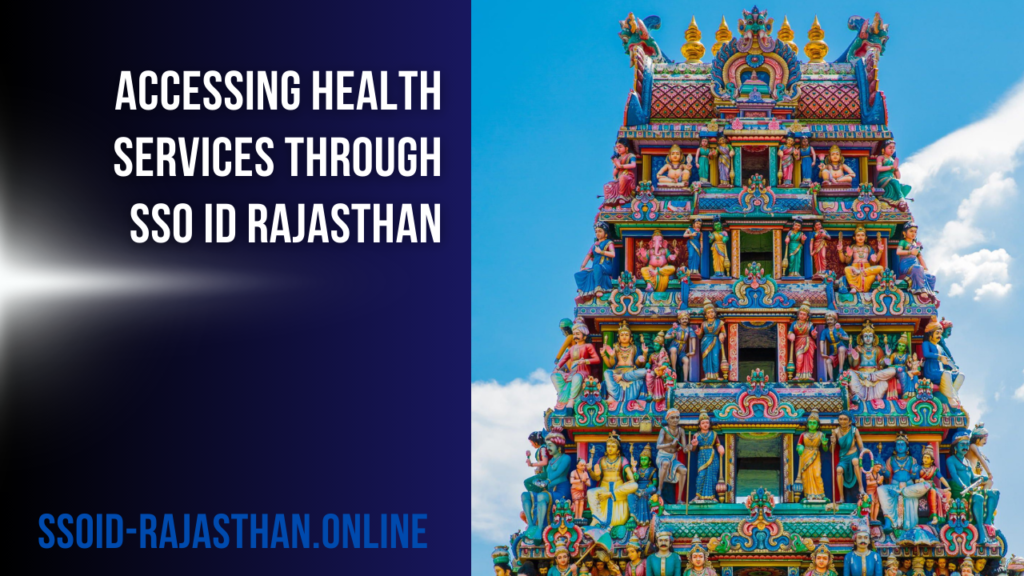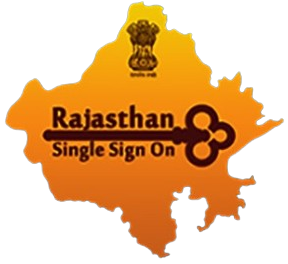In recent years, Rajasthan has made substantial progress in digitalizing public services, with healthcare being a primary focus. The integration of health services with the Single Sign-On (SSO) ID system represents a major advancement in the state’s e-governance initiatives. This article explores how to access health services through SSO ID Rajasthan, examining key factors, challenges, and the impacts of this innovative healthcare approach.

Understanding SSO ID Rajasthan
Before delving into its application in healthcare, it’s essential to understand SSO ID Rajasthan. This unified digital identity platform enables users to access multiple government services using a single set of credentials. This centralized system simplifies user authentication and enhances security by reducing the number of login credentials citizens need to manage.
The Integration of Health Services with SSO ID
The integration of health services with SSO ID Rajasthan marks a significant improvement in making healthcare more accessible and efficient. This system allows citizens to access a wide range of health-related services, including:
- Booking appointments at government hospitals and health centers
- Accessing personal health records
- Applying for health insurance schemes
- Registering for vaccination programs
- Accessing telemedicine services
- Obtaining e-prescriptions and lab reports
Key Factors Impacting Health Service Access through SSO ID
Several critical factors influence the effectiveness of accessing health services through SSO ID Rajasthan:
Digital Infrastructure:
The robustness and reliability of the digital infrastructure, including servers, networks, and software systems, are crucial for ensuring smooth access to health services.
User Interface Design:
The ease of use and intuitiveness of the health service portal significantly impact user experience and the successful utilization of services.
Data Security and Privacy:
Given the sensitive nature of health information, robust security measures are essential to protect patient data.
Integration with Healthcare Facilities:
Seamless integration of the SSO ID system with various healthcare facilities and their existing systems is crucial for efficient service delivery.
Digital Literacy Levels:
The effectiveness of online health services is directly related to the digital literacy levels of Rajasthan’s population, particularly in rural areas.
Availability of Healthcare Providers:
The success of digital health services also depends on the availability and participation of healthcare providers in the system.
Balancing Act: Tradeoffs and Challenges
The integration of health services with SSO ID Rajasthan offers numerous benefits but also presents several challenges, requiring careful balancing of competing factors:
Accessibility vs. Security:
Striking the right balance between making health services easily accessible and maintaining robust security measures to protect sensitive health data.
Standardization vs. Flexibility:
While standardizing health service processes brings consistency, flexibility is necessary to accommodate the diverse healthcare needs across different regions.
Digital vs. In-Person Services:
While promoting digital adoption, it’s crucial to maintain some in-person services to ensure inclusivity for those who lack access to digital platforms.
Speed vs. Accuracy:
Balancing the speed of service delivery with the accuracy of health information and diagnoses is critical.
Data Integration vs. Privacy:
Integrating health data from various sources can enhance healthcare outcomes but also raises concerns about data privacy and consent.
Challenges in Implementation
The implementation of health services through SSO ID Rajasthan faces several challenges:
Digital Divide:
The urban-rural divide in internet connectivity and digital literacy poses a significant challenge to the uniform adoption of digital health services.
Technical Glitches:
Technical issues such as server downtime or software bugs can disrupt access to critical health services.
Resistance to Change:
Healthcare providers and patients accustomed to traditional methods may resist adopting the new system.
Data Accuracy and Interoperability:
Ensuring accurate health records and the interoperability of different healthcare systems is essential but challenging.
Cybersecurity Threats:
Protecting the system from hacking attempts, data breaches, and other cyber threats is an ongoing challenge.
Impact on Stakeholders
The integration of health services with SSO ID Rajasthan has far-reaching implications for various stakeholders:
Patients:
Offers increased convenience, reduced waiting times, and easier access to health information but requires adaptation to new technologies.
Healthcare Providers:
Streamlines processes, reducing administrative burdens and improving efficiency, but requires changes in operational procedures and ongoing training.
Government Health Departments:
Provides valuable data insights for informing health policies and resource allocation but increases the responsibility of ensuring data privacy and system reliability.
Rural Communities:
While potentially improving healthcare access through telemedicine, the system risks widening the healthcare gap if digital infrastructure and literacy are not adequately addressed.
Health Insurance Providers:
Streamlines insurance claims and processes but requires adaptation to the new digital ecosystem.
The Way Forward
As Rajasthan continues to refine and expand its health services through SSO ID, several key considerations will shape its future development:
- Continuous Improvement: Regular assessments and user feedback should drive system improvements.
- Enhanced Data Integration: Further integration with various health databases and systems can provide a more comprehensive view of patient health, leading to better healthcare outcomes.
- Mobile-First Approach: Developing a robust mobile application can enhance accessibility.
- Artificial Intelligence Integration: AI-powered systems can improve efficiency and user experience through preliminary diagnoses and personalized health recommendations.
- Blockchain Technology: Using blockchain for secure health data management can enhance data integrity and patient control over their health information.
- Digital Health Literacy Initiatives: Expanding digital health literacy programs, especially in rural areas, is essential for increasing adoption and ensuring inclusivity.
Conclusion
The integration of health services with SSO ID Rajasthan represents a significant step towards digital healthcare and improved citizen services. It offers tremendous potential to enhance healthcare accessibility, efficiency, and quality, but also presents complex challenges. By balancing digital innovation with inclusivity, security, and accessibility, Rajasthan can create a model for efficient e-health governance. As this digital health system evolves, it has the potential to transform the healthcare landscape, fostering greater access, efficiency, and patient-centric care.
The success of this initiative will depend not only on technological advancements but also on the collective effort of all stakeholders. As Rajasthan leads this digital health revolution, it sets an example for leveraging technology to create more responsive, efficient, and accessible healthcare services. The journey of integrating health services through SSO ID Rajasthan is an ongoing process of learning, adaptation, and improvement, promising to simplify, expedite, and make healthcare services more transparent for all citizens. This digital transformation has the potential to significantly improve health outcomes and the quality of life for the people of Rajasthan, paving the way for a healthier and more digitally empowered society.
What is SSO ID Rajasthan?
SSO ID Rajasthan is a unified digital identity platform provided by the state of Rajasthan, enabling citizens to access multiple government services using a single set of credentials. This system simplifies user authentication and enhances security.
How can I obtain an SSO ID in Rajasthan?
To obtain an SSO ID, visit the official SSO Rajasthan website, complete the registration process by providing necessary details like your Aadhaar number, and create a username and password. Follow the instructions to complete your registration.
What health services can I access using SSO ID Rajasthan?
Using your SSO ID, you can book appointments at government hospitals and health centers, access personal health records, apply for health insurance schemes, register for vaccination programs, access telemedicine services, and obtain e-prescriptions and lab reports.
Is it necessary to have an SSO ID to access health services in Rajasthan?
While not mandatory, having an SSO ID simplifies the process of accessing various health services and provides a more streamlined and secure way to manage your health-related tasks.
How do I book a health appointment using SSO ID?
Log in to the SSO Rajasthan portal, navigate to the health services section, select the hospital or health center, choose an available date and time, and confirm your appointment. You will receive a confirmation notification once the booking is complete.
Can I access my personal health records through SSO ID Rajasthan?
Yes, you can access your personal health records by logging into your SSO account and navigating to the health records section. Ensure that your health records have been linked to your SSO ID for access.
What should I do if I forget my SSO ID password?
If you forget your password, use the ‘Forgot Password’ option on the SSO Rajasthan login page. Follow the instructions to reset your password, which typically involves verifying your identity through your registered email or mobile number.
How secure is my health information when using SSO ID Rajasthan?
The SSO ID Rajasthan system employs robust security measures to protect your health information, including encryption and secure authentication protocols. However, it’s essential to keep your login credentials confidential and follow best practices for online security.
Can I use SSO ID Rajasthan to apply for health insurance schemes?
Yes, you can apply for various health insurance schemes through the SSO Rajasthan portal. Navigate to the relevant section, complete the application process, and track the status of your application online.
What should I do if I encounter technical issues while using SSO ID for health services?
If you face technical issues, contact the SSO Rajasthan support team through the provided contact details on the portal. You can also consult the FAQ section or user guides for troubleshooting tips.
